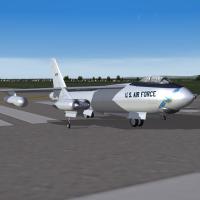-
Content count
9,300 -
Joined
-
Last visited
-
Days Won
497
Content Type
Profiles
Forums
Calendar
Gallery
Downloads
Store
Everything posted by Spinners
-

An Italian thoroughbred in Spanish service
Spinners posted a topic in Thirdwire: Strike Fighters 2 Series - Sci-Fi/Anime/What If Forum
Hispano Aviación HA1155 'Centauro - Ala 36, Ejército del Aire, 1949 -

An Italian thoroughbred in Spanish service
Spinners replied to Spinners's topic in Thirdwire: Strike Fighters 2 Series - Sci-Fi/Anime/What If Forum
I'll be putting something in my install - I love having something to fight in the early post-war period that's not a Parani Spitfire. -

@Spinners
Spinners replied to Veltro2k's topic in Thirdwire: Strike Fighters 2 Series - Sci-Fi/Anime/What If Forum
Thanks Ed. I did see the message but it as I was going off to work. -

LOD Viewer
Spinners replied to mue's topic in Thirdwire: Strike Fighters 2 Series - Mods & Skinning Discussion
Thanks mate - will take a look after work tonight. -

LOD Viewer
Spinners replied to mue's topic in Thirdwire: Strike Fighters 2 Series - Mods & Skinning Discussion
Help! I've accidentally deleted this wonderful tool (don't ask) but cannot find the original Version 0.1 Later Versions do not work and give the following error message; -

Strike Fighters 2 Screenshots
Spinners replied to Dave's topic in Thirdwire: Strike Fighters 2 Series - Screen Shots
Spad to the bone -

WW2 Screenshots Thread
Spinners replied to Wrench's topic in Thirdwire: Strike Fighters 2 Series - Screen Shots
Centauro! -

What If Screenshot Thread.......
Spinners replied to Dave's topic in Thirdwire: Strike Fighters 2 Series - Screen Shots
And without moving my lips... -

Strike Fighters 2 Screenshots
Spinners replied to Dave's topic in Thirdwire: Strike Fighters 2 Series - Screen Shots
Cold War -

Strike Fighters 2 Screenshots
Spinners replied to Dave's topic in Thirdwire: Strike Fighters 2 Series - Screen Shots
Siouxsie -

Strike Fighters 2 Screenshots
Spinners replied to Dave's topic in Thirdwire: Strike Fighters 2 Series - Screen Shots
-

WW2 Screenshots Thread
Spinners replied to Wrench's topic in Thirdwire: Strike Fighters 2 Series - Screen Shots
-

Essex class (long-hull) aircraft carrier
Spinners replied to WhiteBoySamurai's topic in Thirdwire: Strike Fighters 2 Series - File Announcements
Top notch - appreciate the two versions! -

The Heinkel He-280 with the Regia Aeronautica
Spinners posted a topic in Thirdwire: Strike Fighters 2 Series - Sci-Fi/Anime/What If Forum
Heinkel He-280 - 352º Squadriglia, 51º Stormo, Regia Aeronautica, 1944- 1 reply
-
- 5
-

-

Chennault's 'Flying Tigers' get the Ascender!
Spinners posted a topic in Thirdwire: Strike Fighters 2 Series - Sci-Fi/Anime/What If Forum
Curtiss-Wright P-55B - 1st American Volunteer Group ('Flying Tigers') China, 1944- 1 reply
-
- 4
-

-

What If Screenshot Thread.......
Spinners replied to Dave's topic in Thirdwire: Strike Fighters 2 Series - Screen Shots
Curtiss-Wright F14C-3 - VF3, US Navy, 1942 -

Masquerade!
Spinners replied to Spinners's topic in Thirdwire: Strike Fighters 2 Series - Sci-Fi/Anime/What If Forum
The Seversky P-35 Guardsman masquerading as the North Korean Juche K-1... -

The Chu X-PO - China's forgotten WW2 Fighter
Spinners posted a topic in Thirdwire: Strike Fighters 2 Series - Sci-Fi/Anime/What If Forum
Chu X-PO Fighter - Chinese People's Liberation Army Air Force, 1947 This is Veltro 2K's VL Myrsky masquerading as the Chu X-PO which looked more like a P-36 but the Myrsky is a good stand-in for the early post-war period (I like to use SF2:Vietnam from 1946 onwards). -

Masquerade!
Spinners replied to Spinners's topic in Thirdwire: Strike Fighters 2 Series - Sci-Fi/Anime/What If Forum
The VL Myrsky masquerading as the Chu X-PO Chinese fighter -

Strike Fighters 2 Screenshots
Spinners replied to Dave's topic in Thirdwire: Strike Fighters 2 Series - Screen Shots
HMNNWB (Her Majesty's Needle-Nosed Wonder Bird) -

Caproni's Copy Caper!
Spinners posted a topic in Thirdwire: Strike Fighters 2 Series - Sci-Fi/Anime/What If Forum
Caproni F.9T 'Squalo' - 162° Squadriglia, Regia Aeronautica, 1945 Should really be in the masquerade thread! -

Caproni's Copy Caper!
Spinners replied to Spinners's topic in Thirdwire: Strike Fighters 2 Series - Sci-Fi/Anime/What If Forum
Thank you! -

What If Screenshot Thread.......
Spinners replied to Dave's topic in Thirdwire: Strike Fighters 2 Series - Screen Shots
Lavochkin La-166 'Frigate' - 77th Fighter Regiment, Vietnam People's Air Force, 1955 -

What If Screenshot Thread.......
Spinners replied to Dave's topic in Thirdwire: Strike Fighters 2 Series - Screen Shots
Arch Enemy

